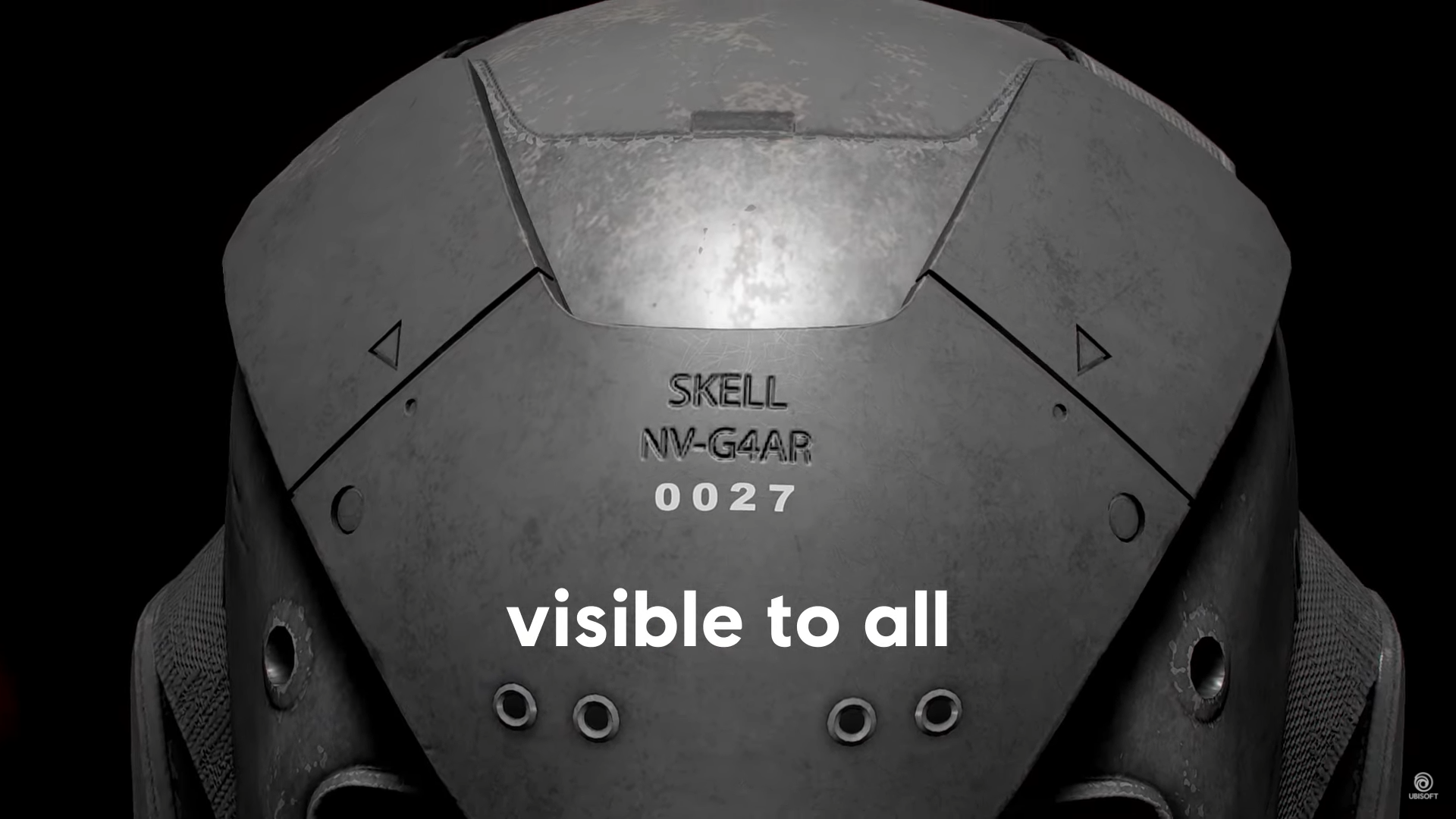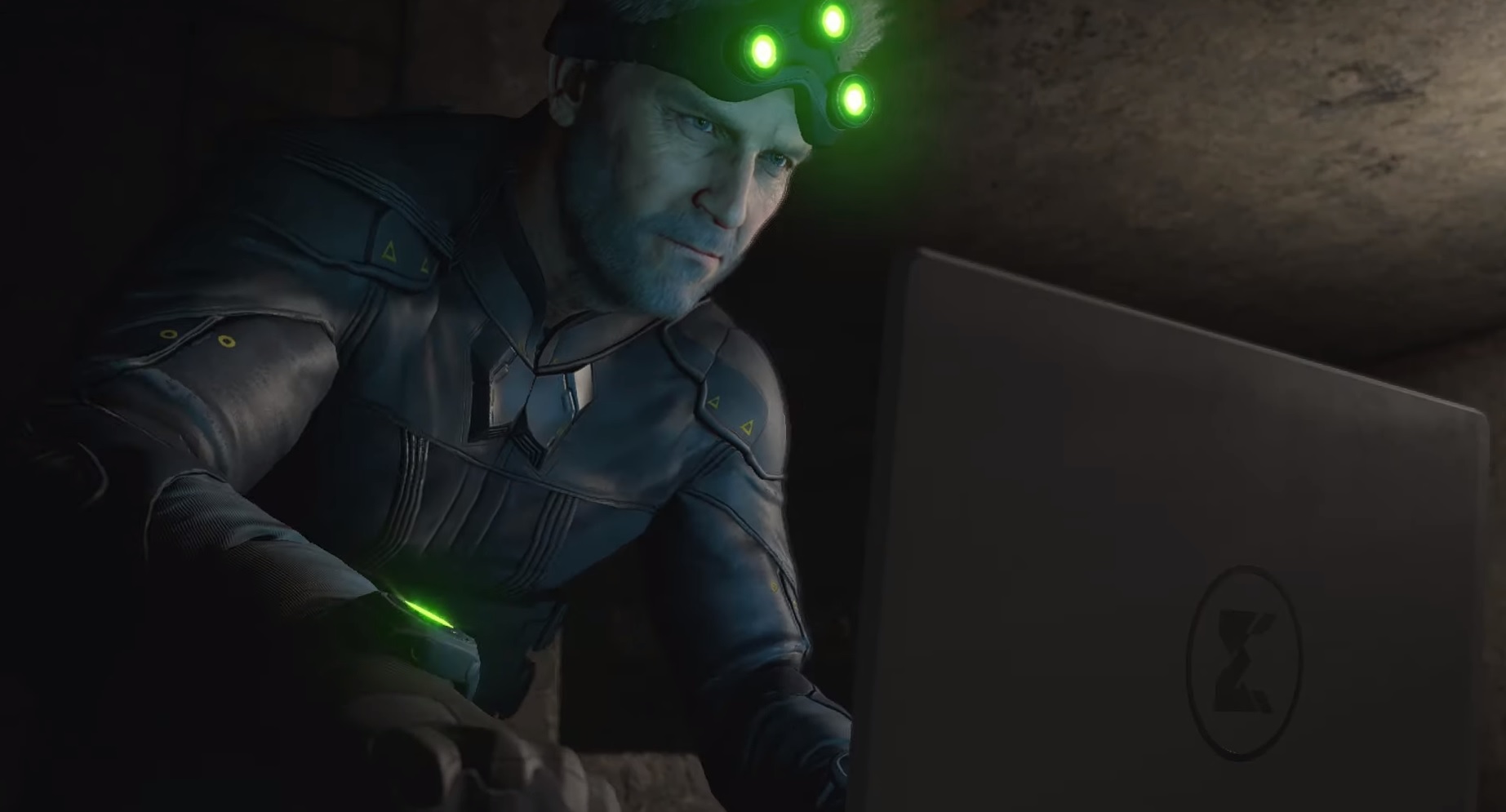Ubisoft VP says players 'don't get' NFTs, but can't explain what there is to get
"It's really beneficial. But they don't get it for now."

Last year Ubisoft announced its first foray into NFTs: Ubisoft Quartz was announced via a new website and an overwhelmingly disliked Youtube video, and basically amounted to selling helmets with little numbers on them in Ghost Recon Breakpoint. Nevertheless the publisher seems committed to the idea of utilising these technologies in some form, and the whole shebang is being led by Nicolas Pouard, VP of Ubisoft's Strategic Innovations Lab.
Pouard has now commented on the backlash to Quartz, telling Finder that "I think gamers don't get what a digital secondary market can bring to them. For now, because of the current situation and context of NFTs, gamers really believe it's first destroying the planet, and second just a tool for speculation. But what we are seeing first is the end game. The end game is about giving players the opportunity to resell their items once they're finished with them or they're finished playing the game itself.
"So, it's really, for them. It's really beneficial. But they don't get it for now. Also, this is part of a paradigm shift in gaming. Moving from one economic system to another is not easy to handle. There are a lot of habits you need to go against and a lot of your ingrained mindset you have to shift. It takes time. We know that."
Even if we give Pouard the benefit of the doubt, and try to understand the Ubisoft pitch, the problem remains that there just doesn't seem to be much here to grasp.
One of Pouard's key arguments is about decentralisation, and how it could potentially change what a game is: "I'm sorry as I know it's difficult to understand right now as this kind of idea doesn't really exist yet. But we see that the ecosystem for a game can be much, much bigger than what a game is today in terms of value creation for everyone."
This of course is leading to the concept of play-to-earn, something that many feel an instinctive revulsion towards. Games are surely about having fun and being entertained, and an escape from the actual world of having to make rent and have a job.
"There's the fun, of course," says Pouard. "The pleasure you take by just playing. There is the fact that you can learn things. For instance, in Assassin's Creed, you learn about history, and we worked on experiments in old games when you could learn new soft skills. So, a game can be a lot of things and can bring a lot of things to players. Adding a real-world value reward might be the next addition on top of all the value a game already offers."
Keep up to date with the most important stories and the best deals, as picked by the PC Gamer team.

There's more in the full interview, but none of this seems especially convincing. The idea of decentralised economies around games is not a new one, and it seems like Quartz lacks a basic use argument beyond owning an in-game cosmetic. This larger concept of such items flowing into and out of other games simply doesn't exist, nor is there a compelling rationale for why players would want to be in such an ecosystem of decentralised guilds roaming from play-to-earn game to play-to-earn game.
The thing with Ubisoft Quartz is, at the moment, it doesn't seem to be doing anything that games haven't already incorporated for a long time. The 'unique' element of them, a numbering system, is hard to get excited about. Perhaps I just don't get it: But it doesn't seem like there's much to get.
Not that anything will stop this trend, for now at least. Ubisoft announced this was coming in November but it's part of a much wider trend among big tech companies. EA called NFTs 'the future of our industry', but Xbox boss Phil Spencer's worried they might be 'exploitative'. Discord teased their integration then swiftly U-turned after major backlash, while Steam's just decided to ban them altogether. The Stalker 2 devs announced NFT integration recently, before massive backlash caused a swift U-turn.
Ubisoft is clearly committed to exploring this tech, and no doubt we'll see further examples of Quartz in the publisher's games this year. I look forward to a game that actually comes up with something resembling a compelling use case for NFTs: I expect to be waiting a good while.

Rich is a games journalist with 15 years' experience, beginning his career on Edge magazine before working for a wide range of outlets, including Ars Technica, Eurogamer, GamesRadar+, Gamespot, the Guardian, IGN, the New Statesman, Polygon, and Vice. He was the editor of Kotaku UK, the UK arm of Kotaku, for three years before joining PC Gamer. He is the author of a Brief History of Video Games, a full history of the medium, which the Midwest Book Review described as "[a] must-read for serious minded game historians and curious video game connoisseurs alike."

